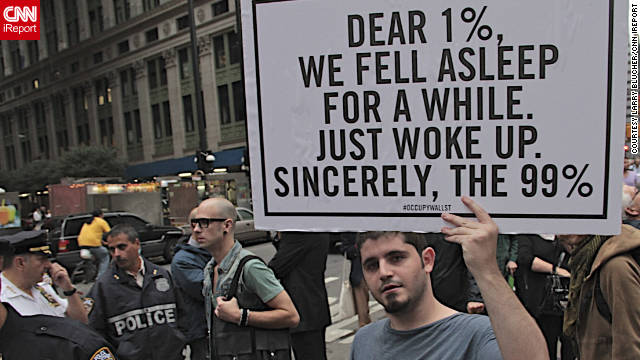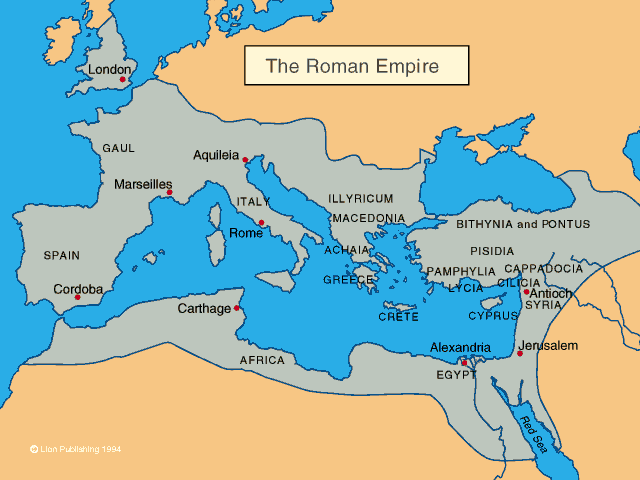Many critics have picked up on the political undertones present in The Hunger Games. Clearly that dystopian future has some parallels to our present American situation. In the film Katniss Everdeen volunteers to be the tribute from her home district that will compete in the annual Hunger Games for both glory and food. Almost immediately she is whisked away from her home and family and put aboard a train bound for the Capital. She and her compatriot Peeta are understandably astounded at the level of luxury which is available.
A striking contrast appears between life in the Capital and the outer districts. As tributes they are provided with nothing but the best. Nevertheless, the average level of wealth and comfort in the Capital is starkly different from that elsewhere. Back home Katniss was forced to hunt wild game, even squirrels, for her family to even survive. Here the populace has more than enough money to waste on keeping up with some ridiculously flamboyant and outlandish fashion trends. A very small number of people enjoying the benefits of the hard work of a very large number of people. A massive gap in the level of prosperity experienced between the rich and the poor. A non-existent or shrinking middle class.
Sound familiar?
I should say that I am deeply opposed to the suggestion that a work of art can or should be treated as the artist's propaganda. It is either propaganda or a work of art, it cannot be both. Nevertheless, works of art, insofar as they incarnate, give life and form to, the principles of the reality and world around us, can certainly take positions themselves on political and economic issues of the day. Even the Divine Comedy has political relevance in our day and age. But it has this relevance only insofar as it has a relation to Truth and Reality, and political ideas stem from those higher and more fundamental principles.
That being said, it is no coincidence that the situation in The Hunger Games is analagous to our own. Artists have no choice but to write from their own experience of the world, and certainly Susane Collins when she wrote the book, and the filmmakers when they adapted it with her help were drawing on the realities in the world they saw around them as they worked to create a work of art with significance and meaning.
Obviously, the film advocates the position that such a situation is undesireable. And rightly so. It is certainly not right that the men and women who are working day in and day out to produce good and valuable things for the use of their community should be deprived of a fair share in the fruits of their labor. It cannot be right for the people doing the actual work to go hungry so that those who own or have a stake in the factory or farm can have enough extra income to buy a summer home in Florida or what have you. The question is, though, how does one solve this situation once it arises? Is it right to take a portion of the wealth that would otherwise be taken by the very wealthy and redistribute it amongst the less fortunate? Well, I would argue that our economic situation is, perhaps, somewhat different from that presented in The Hunger Games. Regardless, it is tangential to the point of this post.
In the flim the root problem that lies behind both Panem's situation and ours comes out much clearer than it does in real life, namely, centralization. The real problem is that it is possible for the very few to have such a wide-reaching influence that they it is even possible for them to amass such an incredible and unbalanced amount of wealth. The problem is huge coroporations with higher GDP's than whole nations. The problem is "product integration." The problem is Staples and Office Depot cornering the office supply market in every city, town, and hamlet from sea to shining sea. Sure, all this stuff keeps prices down, but is that really the most important thing?
Wouldn't it be nice if when you bought a new computer you could do so from some mom and pop electronics store on Main Street and know that when, six months later, they're able to buy a new sign or, for that matter, send their kid to College, you had a small part in that? Wouldn't that be better than handing your money to some megalithic, faceless multi-national conglomerate that's going to spend it on God knows what?
For example, I'll wager that most of you have no idea that starting in the 70s, Nestlé began marketing its infant formula to less developed countries around the world, especially Africa. Sounds harmless enough, right? Here's the problem. Aside from the fact that these babies were deprived of important antibodies and other benefits that can only be obtained from their mothers' milk, when a mother stops breastfeeding regularly her milk soon dries up. If at some point in the future, as is very likely, it becomes impossible to provide formula for her baby due to unsanitary water or just lack of funds or availability, that baby must now go hungry, and may starve to death.
Here's a list of Nestlé brands. Every time you purchased one of those products you supported Nestlé's crimes. Now, certainly we cannot be held responsible for what other people do with our money without our knowledge. For that matter, the degree of separation between buying a box of Nesquik and Nestlé doing what it does may be sufficiently remote to relieve any burden of material cooperation in their activities.
Nevertheless, the root problem remains: when institutions, corporations, governments become as centralized as they are today, the degree to which they are capable of representing the interests of real people, real families is diminished drastically. This could be why only 37.8% of voters turned out for the 2010 elections. Consider this: Even at its height under the Emperor Augustus, the Roman Empire is estimated to have had a population of only 56.8 million people. Taking into account that a very large percentage of that figure were not even citizens and you're left with a civilization comparable in size to, say, the state of New York, spread out over an area the size of Mexico and Central America combined:
The Romans were smart enough to recognize that even an Empire of that (compared to today, small) size couldn't be successfully managed in a very centralized, federalistic way. Instead they entrusted the vast majority of the day-to-day governance to local province and town governments. Pretty much only military and and handful of political and economic ventures were handled from the top down. Of course, there was more than just this practical reality at work behind that decision.
The Romans, along with every other Western culture and civilization until relatively recently, understood and accepted what Catholic thinkers have called the Principle of Subsidiarity. The Principle of Subsidiarity states that those decisions which can be made, those things which can be handled, just as effectively by a constituent member of a larger group as by that larger group itself, should be left in their purview. For example, as a father it would be wrong, not to mention crazy, for me to attempt to insist on absolute control over everything that goes on in my family. There is no reason for me to insist that my daughter organize her clothes or toys in just such a way, as long as she's keeping things tidy enough for the household to continue to function safely and smoothly.
Similarly, in a political structure, there is no reason why the federal government should have to intervene in the day-to-day workings of a state or local government as long as it is abiding by the minimum of general principles set forth in the unifying document(s). The Founding Fathers understood and accepted this. Thus, the Tenth Ammendment, all but forgotten in this day and age.
The Principle of Subsidiarty in government and economics in fact rests on a more fundamental philosophical and metaphysical principle of reality, namely, the Hierarchy of Being. All the beings in the universe are organized into a vast hierarchy of mediation and participation. That is to say, at every level in the universal hierarchy a particular being participates, shares its being and qualities of that being, with the beings both above and below it.
For example, the diamondback rattlesnake is one species within the genus Reptile. All reptiles have certain characteristics, and as a reptile the diamondback rattlesnake shares these with its fellow reptiles. Nevertheless, it itself specializes in certain things and has a number of characteristics (or, perhaps, a certain combination of characteristics) that make it unique. Of course it's more complicated than that, but the idea is that this same principle applies to every other being in the cosmos. Humans are part of the genus Animal; animals are part of the genus Living Being; living beings are part of the genus Material Being; material beings are part of the genus Being, the ultimate genus in which everything that exists shares, which, as Aristotle would say, we call "God." This is the way the universe is organized. It is the way things are supposed to be organized on the human level as well: decentralization, particularism, subsidiarity, delegation.
In The Hunger Games, the poorer districts just want to be left alone. I'm sure they'd be happy to pay taxes and tribute to the central government in exchange for a unified currency and military, but there is a point at which that central government becomes not just a unifying influence, but a tyrannical power demanding ultimate allegiance. Alexis deToqueville saw this coming centuries ago:
He predicted that modern democratic government would degenerate into a huge, paternalistic state which would guide the individual in all of his affairs and insure that all of his needs were met. “For their happiness such a government willingly labors, but it chooses to be the sole agent and the only arbiter of their necessities, facilitates their pleasures, manages their principal concerns, directs their industry, regulates the descent of property, and subdivides their inheritances; what remains, but to spare them all the care of thinking and all the trouble of living?”
It's probably sheer fantasy to expect the situation to change. We're much too dependent on the financial industry to come back from it now. Governmentally-speaking the writing's been on the wall since 1865. And the New Deal didn't help. I wonder, though, what could happen if, despite all their differences, Occupy Wall Street and the Tea Party realized how much they have in common with one another. Their combined efforts would be a force to be reckoned with.











